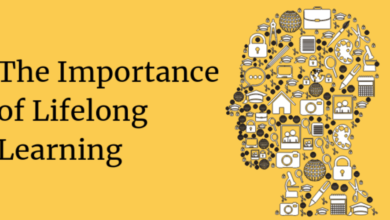The Power of Project-Based Learning in Developing Critical Thinking

Project-Based Learning (PBL) has emerged as a significant pedagogical approach that promotes critical thinking through authentic, hands-on experiences. By engaging students in complex, real-world issues, PBL encourages them to analyze data, consider multiple viewpoints, and develop innovative solutions. This method not only enhances cognitive skills but also prepares learners to tackle societal challenges with a critical lens. As educators increasingly adopt PBL strategies, it raises questions about the most effective ways to implement these practices and their long-term impact on student success. What might these implications reveal about the future of education?
Understanding Project-Based Learning
Project-Based Learning (PBL) is an instructional methodology that engages students in active exploration of real-world problems, fostering deeper understanding and critical thinking skills through collaborative and inquiry-driven tasks.
This approach emphasizes clear project definitions, ensuring that objectives align with desired learning outcomes.
Benefits of Critical Thinking
Critical thinking serves as a cornerstone for effective decision-making and problem-solving, enabling individuals to analyze information rigorously and evaluate various perspectives before arriving at well-informed conclusions.
This skill fosters creative problem solving and enhances analytical reasoning, empowering individuals to navigate complex situations with confidence.
Ultimately, the benefits of critical thinking extend beyond academic contexts, facilitating personal growth and informed citizenship in a dynamic world.
PBL Strategies for Educators
Effective strategies for educators in implementing project-based learning (PBL) can significantly enhance students’ critical thinking skills, allowing them to engage deeply with content while fostering collaboration and real-world problem-solving abilities.
Consider these approaches:
- Utilize PBL assessment techniques to measure growth.
- Integrate collaborative learning strategies to promote teamwork.
- Encourage reflective practices to deepen understanding.
These methods empower students, cultivating their innate desire for freedom in learning.
Real-World Applications of PBL
Real-world applications of project-based learning (PBL) illustrate how students can tackle complex challenges, bridging theoretical knowledge with practical skills essential for success in diverse fields.
By engaging in interdisciplinary projects, students not only enhance their critical thinking abilities but also foster community engagement.
These experiences empower learners to address societal issues, cultivate collaboration, and develop solutions that resonate beyond the classroom.
Also read: The Importance of Lifelong Learning in Today’s World
Conclusion
In a world increasingly defined by complexity and innovation, the transformative potential of Project-Based Learning cannot be overstated.
This dynamic educational approach catapults students into the realm of critical thinking, equipping them with unparalleled analytical prowess and collaborative skills.
As learners tackle real-world challenges, they emerge not just as scholars, but as architects of change, poised to revolutionize society.
Embracing PBL is not merely an option; it is an imperative for cultivating the visionary thinkers of tomorrow.



